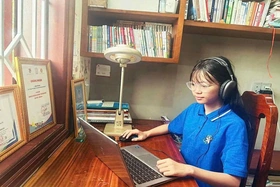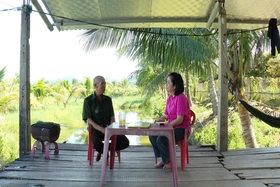LuG7g1194bqt4buJNuG7oeG7oeG7tnvhu51Q4buFcOG7iWJ7IS7hu6Fw4bufa2rhu4ch4buq4buFYnBqNsSpYuG7oWJ9YuG7reG7nTZw4buhfeG7hWp9UOG7gzbhu4Xhu4k2auG6qS4v4buhcOG7n2tq4buHIS4v4buDXSEu4budfeG6reG7iTbhu6Hhu6Hhu7Z74bud4buCYjbhuql7IeG7s+G7iXDhu4NrceG7h+G7g31w4buDYuG7r33hu4nhu4Xhu6tifeG7gTbhu599NuG7sTbhu6994buB4bufa8SpfXDhu4Ni4buF4buffeG7n2trcOG7oSZ94buq4buFYnBqNsSpYuG7oWJ94buFan1Q4buDNuG7heG7iTZq4bqpfeG7gzbhu6tifeG7hWpwYuG7h+G7nzZwYuG6qX3hu7Fi4buJ4buJfeG7hWpwa31w4buDYn3hu4nhu4Xhu4FifWvhu4F9cOG7g2J94buDa+G7oXB94bqt4bqta3FqcOG7n+G7rz8uL+G7nSEu4budfeG6reG7iTbhu6Hhu6Hhu7Z74bud4bqma+G6qeG7r3sh4buz4bufa3Fq4bqpfSJbW33hu69iNuG7n+G7oX024buHayZ94bqpceG7n+G7hWrhu4d9cOG7g2J9SuG7h3Hhu69ian3huqjhu69qNuG7oXDhu68mfeG7quG7hWJwajbEqWLhu6FifeG7nWJr4bud4buJYn3huqdi4buHNmp9cGt9xKnhu4Xhu4fhu582cGJ9cGt9cOG7g2J94oCY4buL4buFauG7h+G6qWvEqX1r4buBfeG7h2vhu4nhuqlian1wYsSp4bud4buJYuG7oeKAmX3hu4Fr4buffcSpNmrhu6994bufYjbhu6FrauG7oSZ9xKk24buFauG7ieG7r31wa33hu4Hhu4Vq4bqpfeG7sWvhu5/hu4t9Nmrhuql94buB4buJYmJ94buB4bufa8SpfeG7sTbhu5/hu6E/feG7s+G7iXDhu4NrceG7h+G7g31w4buDYn1w4buFxKli4buhJn1w4buDYn3hu6rhu4VicGo2xKli4buhYn3huq1rxKnEqXFq4buFcOG7r33hu4Ni4bufYn024buJ4buxNuG7r+G7oX3hu6Hhu4Nr4buxfeG6qWLhu6trcOG7hWtqfXBrfXDhu4Ni4buF4buffeG7gDZw4buDYuG7n+G7iTZq4bqpfeG7seG7g+G7heG7iWJ94bud4bufYuG7oWLhu5/hu6vhu4Vq4buHfXDhu4Ni4buF4buffWo2cOG7hWtqNuG7iX3huq1x4buJcHHhu59iPy4v4budIS7hu5194bqt4buJNuG7oeG7oeG7tnvhu53huqZr4bqp4buveyEuYsSpIS7hu4XEqeG7h33huq3hu4k24buh4buh4bu2e+G7heG6rGJqcGLhu597feG7oXDhu6/hu4li4bu2e+G7seG7heG6qXDhu4MlfV0iNFvhu53hu60qfeG7g2Lhu4Xhu4fhu4NwJX01Mlvhu53hu60qe33hu6Hhu5/huq3hu7Z7Ly/hu4U/4bqnNmvhu6NxNmrhu4dw4buf4buFP+G7q2ovamLhu7Hhu6EvIjBbNC9dIDHhuqkiXVsxNTE1cCJbMTPhu4kzLeG7o3AtXT/hu7Fi4bqn4bude3024buJcOG7tnvhu6rhu4VicGo2xKli4buhYn1i4but4budNnDhu6F94buFan1Q4buDNuG7heG7iTZq4bqpe33hu7Hhu4Xhuqlw4buD4bu2e10iNFt7feG7g2Lhu4Xhu4fhu4Nw4bu2ezUyW3t9LyEuL2LEqSEuL+G7nSEu4budfeG6reG7iTbhu6Hhu6Hhu7Z74bud4bqsNuG7nXDhu4VranshLmLEqSHhuqjhu4VicX3hu4bhu4U24bqtfeG7nDbhu4dr4bqpNn3hu4VqfcSoceG7i+G6qTbhu4M2an3hu4Xhu6F9XVtbQH3hu6rhu4VicGo2xKli4buhYiZ94buFauG6reG7iXHhuqnhu4Vq4buHfXDhu4NifeG6qWLhu6Hhu4Xhu4dqJn3EqTZwYuG7n+G7hTbhu4nhu6EmfeG6rWtq4buhcOG7n3Hhuq1w4buFa2p94buxa+G7n+G7i2Lhu5/hu6EmfcSpa2rhu4vhu6F9Nmrhuql94bur4buF4buh4buFcGvhu5/hu6E/feG7nOG7g2twayV9UHFq4buHfeG7iDbEqS4vYsSpIS4v4budIS7hu5194bqt4buJNuG7oeG7oeG7tnvhu53hu4RqcGLhu59Q4buFcOG7iWJ7IS7hu6Fw4bufa2rhu4chS2rhu4nhu6994bufYnBx4bufauG7hWrhu4d9cGt9cOG7g2J9Smvhu59w4buDfXBrfeG7gWvhu4nhu4lr4buxfVFq4bqt4buJYn3hu4JrLi/hu6Fw4bufa2rhu4chLi/hu50hLuG7nX3huq3hu4k24buh4buh4bu2e+G7neG6pmvhuqnhu697IeG6qHHhu5/hu4Vq4buHfTZ94bqnceG7oeG7hWpi4buh4buhfXDhu5/hu4Xhu519cGt9UOG7gzbhu4Xhu4k2auG6qX3hu4VqfcSp4buF4bqpLUpr4burYsSp4bqnYuG7n30iWyIgJn3hu4R94buxNuG7oX3hu4lx4bqt4buL4buvfXBrfcSpYmJwfeKAmOG7geG7heG7n+G7oXAt4buHYmpi4bufNnDhu4VrauKAmX1i4buJ4bqpYuG7n+G7oX074bqta3FqcGLhuql94buh4buFauG6rWJ94buq4buFYnBqNsSpYuG7oWJ94budYmvhu53hu4lifeG7oXA24bufcGLhuql9cGt94buFxKnEqeG7heG7h+G7nzZwYn3hu4Ni4bufYn3hu4VqfeG7iTbhu5/hu4difWpxxKnhuqdi4buf4buhLCZ9NuG7oX3hu7Fi4buJ4buJfTbhu6F9cOG7g2J94buJYjbhuqli4buf4buhfWvhu4F9cOG7g2J94buz4buh4buha+G6reG7hTZw4buFa2p9a+G7gX3hu6rhu4VicGo2xKli4buhYn3hu5xia+G7neG7iWJ94buFan1Q4buDNuG7heG7iTZq4bqpfTvhu7Phu6rhu5xQLCZ9cGt94buJYjbhu59qfcSpa+G7n2J94buhcGvhu5/hu4Vi4buhfTbhuqdrcXB94buq4buFYnBqNsSpYuG7oWJ94budYmvhu53hu4lifeG7hWp9cOG7g+G7heG7oX3huq1rcWpw4buf4buvPy4v4budIS7hu5194bqt4buJNuG7oeG7oeG7tnvhu53huqZr4bqp4buveyFQ4bufcWtq4buHfVDhu4Phu4V94buGNuG7hSZ9Nmp9NDAt4buvYjbhu58ta+G7ieG6qX3hu59i4buh4buF4bqpYmpwfWvhu4F9xKhx4buL4bqpNuG7gzZqJn3hu6E24buF4bqpfXDhu4M2cH3hu6Hhu4NifeG6rTbEqWJ94buB4bufa8SpfeG7onE2auG7h33huqbhu4Vq4buDfeG7nOG7n2vhu6vhu4Vq4bqtYj994bqo4buf4buF4burYmp94bqn4buvfeG7nWvhu6ti4bufcOG7ryZ94buh4buDYn3hu4Fr4buJ4buJa+G7sWLhuql94buDYuG7n33hu5024bufYmpw4buhfXBrfeG7iDZr4buhfXBrfcSpNuG7i2J9Nn3hu4nhu4Xhu6vhu4Vq4buHfTZwfXDhu4NifTbhu4difWvhu4F9Mj994buz4buhfeG7sTbhu5994bqtNsSpYn3hu4VqfV01MDEmfXDhu4NifeG7gTbEqeG7heG7ieG7r33hu6FrceG7h+G7g3B94bufYuG7gXHhu4difeG7hWp9UOG7gzbhu4Xhu4k2auG6qX0tfeG7seG7g2JqfeG7oeG7g2J94buxNuG7oX00P33hu4Br4buffXDhu4NifeG7oTbEqWJ94bufYjbhu6FraiZ94buIYn1Q4buD4buFfeG7iOG7hWJxfTs0XSx9O+G7iGJ94buga2p94buq4buF4buJ4buJNuG7h2ImfeG7qjZqfeG7gms2feG6rGvEqcSpcWpiJn1QceG7r2JqfeG7gms2feG6qOG7heG7oXDhu5/hu4Xhuq1wLCZ94buB4buJYuG6qX3hu4Hhu59rxKl94buicTZq4buHfeG6puG7hWrhu4N9cGt9UOG7gzbhu4Xhu4k2auG6qX3hu7Hhu4Nian3hu6Hhu4NifeG7sTbhu6F9cOG7g+G7n2JifeG7r2I24buf4buhfWvhu4nhuqk/Li/hu50hLuG7nX3huq3hu4k24buh4buh4bu2e+G7neG6pmvhuqnhu697IeG7gGvhu5/huq1i4bqpfeG6pzbhuq3hu4t94buDa8SpYn3huqfhu699cOG7g2J9UOG7gzbhu4V94buHa+G7q2Lhu59qxKlianB94buFan1w4buDYn1dNTJb4buhJn1w4buDYn1r4burYuG7n+G7oWI24buhfeG7quG7hWJwajbEqWLhu6FifXDhu4Ni4bufYn3huq3hu4Nr4buhYn1wa33hu59icHHhu59qfXBrfUpr4bufcOG7g33hu6rhu4VicGo2xKl9Nmrhuql94buBa+G7ieG7iWvhu7F9UWrhuq3hu4lifeG7gmvigJnhu6F94buJYjbhuqk/feG7gmvhu7Fi4burYuG7nyZ94buha8SpYn1r4buBfXDhu4NixKl94buxYuG7n2J94buhcHHhuq3hu4t9NuG7oX1w4buDYn1R4bugfeG6rWtqcOG7hWpxYuG6qX1wa33huqdrxKnhuqd9cOG7g2J9Smvhu59w4buDP33hu6Bw4buF4buJ4buJJn1w4buDYuG7r33hu59i4buha+G7iXFwYuG7ieG7r33hu59i4buBceG7oWLhuql94bufYuG7nTZw4buf4buFNnDhu4Vran1xauG6qWLhu599cOG7g2J94buga3Fw4buDYuG7n2p94bufYuG7h+G7hcSpYiZ94bud4bufYuG7gWLhu5/hu5/hu4Vq4buHfXBrfeG6p2J94buFxKnhu53hu5/hu4Xhu6FramLhuql94buFan1Q4buDNuG7heG7iTZq4bqpPy4v4budIS7hu5194bqt4buJNuG7oeG7oeG7tnvhu53huqZr4bqp4buveyFQ4buD4buF4buhfTbhu4nhu6FrfWLhu63hu53hu4k24buFauG7oX3hu7Hhu4Phu699xKk2auG7r31r4buBfXDhu4NifeKAmOG7geG7heG7n+G7oXAt4buHYmpi4bufNnDhu4VrauKAmX3hu6rhu4VicGo2xKli4buhYn3hu6FicHDhu4li4bqpfeG7nWLhu5/EqTZqYmpw4buJ4buvfeG7g2Lhu59iJn1i4burYmp9cOG7g2tx4buH4buDfXDhu4Ni4buF4buffWvhu5/hu4Xhu4fhu4VqNuG7iX3hu4VqcGJqcOG7hWtqfeG7sTbhu6F9cGt94buHa33huqc24bqt4buLfXBrfXDhu4Ni4buF4buffeG7g2vEqWLhu4k2auG6qX024buBcGLhu599cOG7g2J9Ymrhuql9a+G7gX1w4buDYn3hu7E24bufPy4v4budIS7hu5194bqt4buJNuG7oeG7oeG7tnvhu53huqZr4bqp4buveyEuYsSpIS7hu4XEqeG7h33huq3hu4k24buh4buh4bu2e+G7heG6rGJqcGLhu597feG7oXDhu6/hu4li4bu2e+G7seG7heG6qXDhu4MlfV0iNFvhu53hu60qfeG7g2Lhu4Xhu4fhu4NwJX01Mlvhu53hu60qe33hu6Hhu5/huq3hu7Z7Ly/hu4U/4bqnNmvhu6NxNmrhu4dw4buf4buFP+G7q2ovamLhu7Hhu6EvIjBbNC9dIDHhuqkiXV1bWzBdcCJdWzLhu4kgLeG7o3AtIj/hu7Fi4bqn4bude3024buJcOG7tnvhu6rhu4VicGo2xKli4buhYn1i4but4budNnDhu6F94buFan1Q4buDNuG7heG7iTZq4bqpe33hu7Hhu4Xhuqlw4buD4bu2e10iNFt7feG7g2Lhu4Xhu4fhu4Nw4bu2ezUyW3t9LyEuL2LEqSEuL+G7nSEu4budfeG6reG7iTbhu6Hhu6Hhu7Z74bud4bqsNuG7nXDhu4VranshLmLEqSHhu4hifVDhu4Phu4V94buI4buFYnF9O+G7neG7hWrhu4t94buh4buD4buF4bufcCx94bux4buF4buh4buDYuG7oX1wa31r4bqncDbhu4VqfeG7quG7hWJwajbEqWLhu6FifWo2cOG7hWtqNuG7ieG7hXDhu6994buBa+G7n31w4buDYn3hu6E24buLYn1r4buBfeG7g2Lhu5994bufa2tw4buhP33hu5zhu4NrcGslfVBxauG7h33hu4g2xKkuL2LEqSEuL+G7nSEu4budfeG6reG7iTbhu6Hhu6Hhu7Z74bud4bqma+G6qeG7r3sh4buz4bqt4bqta+G7n+G6qeG7hWrhu4d9cGt94buz4buq4bucUH3huqzhu4M24buF4bufxKk2an1K4buHceG7r2JqfUrhu4dr4bqtfVDhu4Phu4VqJn1w4buDYuG7n2J9NuG7n2J94bqtceG7n+G7n2JqcOG7ieG7r3024bqna3FwfSJbW31w4buDa3Hhu6E2auG6qX3hu6rhu4VicGo2xKli4buhYn3hu51ia+G7neG7iWJ94buJ4buF4bur4buFauG7h33hu4VqfVDhu4M24buF4buJNmrhuql9LX01W1t94buDa3Hhu6Fi4buDa+G7ieG6qeG7oX02auG6qX1qYjbhu5/hu4nhu699MiYxW1t94bufYuG7oeG7heG6qWJqcOG7oX3hu4VqfcSoceG7i+G6qTbhu4M2an3hu5zhu59r4bur4buFauG6rWJ9NuG7iWtqYj99UOG7g2Lhu6994bqtNmp94bqnYn3huqnhu4Xhu6vhu4Xhuqli4bqpfeG7hWpwa33hu4FrceG7n33hu4diamLhu582cOG7hWtq4buhJn3hu7Hhu4Vw4buDfXDhu4NifeG7oWLhuq1rauG6qX02auG6qX1w4buD4buF4buf4bqpfWtqYuG7oX3hu4Fr4bufxKnhu4Vq4buHfXDhu4NifcSpNsOsa+G7n+G7hXDhu68/fVDhu4NifeG7geG7heG7n+G7oXB94buHYmpi4bufNnDhu4Vran3hu4Vq4bqt4buJceG6qWJ9cOG7g2vhu6FifeG6p2vhu59qfeG7hWp94buq4buFYnBqNsSpfTZq4bqpfeG7iDZr4buhJn1w4buDYmp9xKnhu4Xhu4fhu582cOG7hWrhu4d9cGt9UOG7gzbhu4Xhu4k2auG6qX3huqdi4buBa+G7n2J9XTUwMX0tfcSpa+G7oXDhu4nhu699NuG7oX3hu7E24buffeG7n2Lhu4Fx4buHYmLhu6E/Li/hu50hLuG7nX3huq3hu4k24buh4buh4bu2e+G7neG6pmvhuqnhu697IeG6pmLhu4lrauG7h+G7hWrhu4d9cGt9cOG7g2J94buhYuG6rWtq4bqpfTZq4bqpfeG7oXHhuq3huq1iYuG6qeG7hWrhu4d9a2pi4buhfTbhu59ifXDhu4Nr4buhYn3huqdr4bufan3hu4VqfVDhu4M24buF4buJNmrhuql9Nmrhuql94bqtceG7n+G7n2JqcOG7ieG7r33hu69rcWrhu4di4buffXDhu4M2an0zNH3hu69iNuG7n+G7oT994buEan1w4buDYn3hu5024buhcCZ9a+G7q2Lhu5/hu6FiNuG7oX3hu6rhu4VicGo2xKli4buhYn3huq1rauG6rWJqcOG7nzZwYuG6qX3hu4VqfeG7gWtx4buffWpr4bufcOG7g2I24buhcGLhu59qfeG7neG7n2vhu6vhu4Vq4bqtYuG7oX1r4buBfVDhu4M24buF4buJNmrhuqkmfWo2xKli4buJ4buvfUprauG7h33hu4rhu4M24buFJn1KNuG7i+G7g2tqfeG7nOG7gzZqa8SpJn3hu6A24buLa2p9Sjbhu4vhu4Nran02auG6qX1R4bqpa2p9UOG7gzZq4buFJn024buJ4buJfWvhu4F94bux4buD4buF4bqt4buDfeG7ieG7hWJ9amI24buffXDhu4NifcSoYuG7i2tq4buHfeG7nuG7heG7q2Lhu599Nmrhuql9cOG7g2J94buINmvhu6EtUOG7gzbhu4Xhu4k2auG6qX3huqdr4buf4bqpYuG7nz994buA4bufa8SpfXDhu4NifXDhu4Phu4Xhu5/huql94buHYmpi4bufNnDhu4Vran1rauG7sTbhu5/huqnhu6EmfXDhu4Ni4buvfeG7ieG7heG7q2J9Nmrhuql94bqpa33huqdx4buh4buFamLhu6Hhu6F9NuG7ieG7iX1r4burYuG7n31w4buDYn3huq1rcWpw4buf4buvPy4v4budIS7hu5194bqt4buJNuG7oeG7oeG7tnvhu53huqZr4bqp4buveyFQa31xauG7hXBifXDhu4NifeG7quG7hWJwajbEqWLhu6FifeG6rWvEqcSpcWrhu4Vw4buvfeG7hWp9UOG7gzbhu4Xhu4k2auG6qSZ9ceG7neG7g2vhu4nhuql94buha+G7ieG7heG6qTbhu5/hu4Vw4buvfTZq4bqpfeG6qWLhu6trcOG7hWtqfXBrfXDhu4NifeG7gDZw4buDYuG7n+G7iTZq4bqpJn3hu4VqcGLhu4fhu582cGJ9Nmrhuql94bqpYuG7q2Lhu4lr4budfeG6qWJi4bud4buJ4buvfeG7hWp9cOG7g2J94buJa+G6rTbhu4l94buha+G6reG7hWJw4buvJn02auG6qX1wa33huqdi4bqta8SpYn02feG7oeG7heG7h2rhu4Xhu4Hhu4Xhuq02anB94bqn4buf4buF4bqp4buHYn3hu4VqfXDhu4NifeG7quG7hWJwajbEqS1Q4buDNuG7heG7iTZq4bqpfWpi4buF4buH4buD4bqna+G7n+G7ieG7r33hu59i4buJNnDhu4VrauG7oSZ9cOG7g2J94buz4buq4bucUH3hu7E24buhfeG7gWtxauG6qWLhuql94buFan3hu6Bi4budcGLEqeG6p2Lhu599IltdID994buEcOG7oX1C4butYuG6rXFw4buF4burYn3huqZrNuG7n+G6qX3hu4Vq4bqt4buJceG6qWLhu6F9Nn3huq3hu4M24buF4bufxKk2aiZ94buB4buF4burYn3hu6vhu4Xhuq1iLeG6reG7gzbhu4Xhu5/EqTZqfTZq4bqpfTZ94buhYuG6reG7n2JwNuG7n+G7rz99UWrhuqli4buffXDhu4NifTbhu6Hhu6Fr4bqt4buFNnDhu4VraiZ9cOG7g2Lhu59ifTbhu59ifSIyfTbhu4Hhu4Hhu4Xhu4nhu4U2cGLhu6F94buFan0iMn3hu53hu59r4bur4buFauG6rWLhu6F94bux4buFcOG7g33hu4k24buf4buHYn3hu6rhu4VicGo2xKli4buhYn3hu51r4budceG7iTZw4buFa2rhu6EmfWI24bqt4buDfeG7seG7hXDhu4N9Nn3hu7BrxKliauKAmeG7oX3huqxrxKnEqeG7hXBwYmI/fVDhu4Ni4bufYn3hu4Xhu6F9NuG7ieG7oWt9cOG7g2J94buz4buh4buha+G6reG7hTZw4buFa2p9a+G7gX3hu6rhu4VicGo2xKli4buhYn1CanDhu59i4bud4bufYmpiceG7n+G7oX3hu4VqfVDhu4M24buF4buJNmrhuql9Nmrhuql94buFcOG7oX1dIn024buB4buB4buF4buJ4buFNnBi4buhfeG7hWp94bqp4buF4buB4buBYuG7n2JqcH3hu53hu59r4bur4buFauG6rWLhu6E/Li/hu50hLuG7nX3huq3hu4k24buh4buh4bu2e+G7neG7hGpwYuG7n1Dhu4Vw4buJYnshLuG7oXDhu59rauG7hyHhuqjhu4Xhu4Hhu4Hhu4Xhuq1x4buJcOG7r33hu4VqfeG7iWI24bufauG7hWrhu4d94buq4buFYnBqNsSpYuG7oWJ9Nmrhuql9NuG6reG7o3Hhu4Xhu5/hu4Vq4buHfeG6reG7hXDhu4V6Ymrhu6Hhu4Phu4Xhu50uL+G7oXDhu59rauG7hyEuL+G7nSEu4budfeG6reG7iTbhu6Hhu6Hhu7Z74bud4bqma+G6qeG7r3sh4buEan1w4buDYuG7heG7n33hu6Fwa+G7n+G7hWLhu6F9NuG6p2txcH3hu6rhu4VicGo2xKli4buhYn3hu51ia+G7neG7iWJ94buFan1Q4buDNuG7heG7iTZq4bqpJn3hu7Phu6rhu5xQfeG6rOG7gzbhu4Xhu5/EqTZqfUrhu4dx4buvYmp9SuG7h2vhuq19UOG7g+G7hWp9Nmrhuql94bugYuG6reG7n2JwNuG7n+G7r33hu6prfeG7gjbhu4V94buh4buDNuG7n2Lhuql9cOG7g2J94buBNuG7q2vhu5824bqn4buJYn3huq1rauG6qeG7hXDhu4VrauG7oX02auG6qX3huqnhu4Xhu4Hhu4Hhu4Xhuq1x4buJcOG7hWLhu6F94buFan3EqTbhu4vhu4Vq4buHfTZ94buJ4buF4bur4buFauG7hyZ94bud4bufYuG7oWLhu5/hu6vhu4Vq4buHfXDhu4Ni4buF4buffeG7g2vEqWJwa+G7sWrigJnhu6F94bqtceG7oXBrxKnhu6F9Nmrhuql9cOG7nzbhuqnhu4Vw4buFa2rhu6EmfeG7iWI24bufauG7hWrhu4d9cOG7g2Lhu4Xhu599ajZw4buF4burYn3hu4k2auG7h3E24buHYiZ9Nmrhuql9a+G6p3A24buFauG7hWrhu4d94buq4buFYnBqNsSpYuG7oWJ9ajZw4buFa2o24buJ4buFcOG7rz8uL+G7nSEu4budfeG6reG7iTbhu6Hhu6Hhu7Z74bud4bqma+G6qeG7r3sh4bqoceG7n+G7hWrhu4d94buxNuG7n3Dhu4XEqWJ9NuG7oX3hu7Fi4buJ4buJfTbhu6F94buvYjbhu5/hu6F94bqnYuG7gWvhu59iJn3hu4liNuG7n2rhu4Vq4buHfeG7quG7hWJwajbEqWLhu6FifeG7sTbhu6F94bqnNmpqYuG6qX3huqdi4bqtNnHhu6FifeG7hXB94buxNuG7oX3huq1rauG7oeG7heG6qWLhu59i4bqpfeG7oXHhu53hu51r4bufcH3hu4Fr4buffeG6rWvEqcSpcWrhu4Xhu6HEqT99UOG7g2Lhu59i4buBa+G7n2ImfXDhu4NifWLhu63hu502cOG7oX3hu4M24bqpfXBrfXBiNuG6reG7g31w4buDYn3hu4k2auG7h3E24buHYn3hu4VqfeG7oWLhuq3hu59icCV94budNuG7n2JqcOG7oX1wa33huq3hu4Phu4Xhu4nhuqnhu59iaiZ9a+G7ieG6qWLhu5994buh4buF4bqn4buJ4buFauG7h+G7oX1wa33hu69rcWrhu4di4buffWtqYuG7oSZ9Nmrhuql9amLhu4Xhu4fhu4Phuqdr4buf4buhfXBrfWI24bqt4buDfWtw4buDYuG7nz994buga8SpYn1r4buBfXDhu4NixKl9YuG7q2JqfeG7sWJqcH1wa33DrDbhu4Xhu4k/feG7gjbhu4V9O+G6p2vhu59qfeG7hWp9XTUyWyx94bufYuG6rTbhu4nhu4li4bqpfeG7g2J94buxNuG7oX3huq3hu4M24buhYuG6qX3huqfhu699cOG7g2J94buda+G7ieG7heG6rWJ94buvYnB94buxNuG7oWrigJlwfTbhu5/hu59i4buhcGLhuqkmfeG6p2Lhuq02ceG7oWJ94buD4buF4buhfeG7ocSpNuG7ieG7iX3hu4fhu59rceG7nX3hu7E24buhfWtq4buJ4buvfeG7hzZw4buDYuG7n+G7hWrhu4d94bux4buFcOG7g31qa3Bi4bqna2vhu4vhu6F9Nmrhuql94budYmrhu6EmfeG7seG7g+G7heG6reG7g33hu7Fi4bufYn1iNuG7oeG7r31wa33igJzhu4dicH3hu5/hu4Xhuql9a+G7geKAnT994buEan1w4buDYn1dNTNbLV01MyJ94budYuG7n+G7hWvhuqkmfXDhu4NifVHhu6B94bqnYuG7hzZqfXBrfeG7seG7hXDhu4Phuqnhu5824buxfeG7geG7n2vEqX1Q4buDNuG7heG7iTZq4bqpJn3hu6FrfXDhu4NifeG7neG7n2vhu4Phu4Xhuqfhu4Vw4buFa2p9a2p94buq4buFYnBqNsSpYuG7oWJ94buJYjbhu59q4buFauG7h33hu7E24buhfeG7iWtr4buhYmpi4bqpPy4v4budIS7hu5194bqt4buJNuG7oeG7oeG7tnvhu53huqZr4bqp4buveyHhu4RqfXDhu4NifeG7nTbhu6FwfSBbfeG7r2I24buf4buhJn1w4buDYn3hu59i4buJNnDhu4VrauG7oX3huqdicOG7sWJian1w4buDYn1w4buxa33huq1rcWpw4buf4buFYuG7oX3hu4M24burYn3huq3hu4M2auG7h2Lhuql9Nn3hu4lrcCZ9Nmrhuql94buJYjbhu59q4buFauG7h33hu6rhu4VicGo2xKli4buhYn3hu4Xhu6F9amt94buJa2rhu4di4buffeG7gWvhu5/huqfhu4Xhuqnhuqliaj99UGvhuqk24buvJn1w4buDYn3hu7Phu6rhu5xQ4oCZ4buhfeG7oeG7iWvhu4c2an3hu4Xhu6ElfeKAnOG7oOG7nWI24buLfeG7quG7hWJwajbEqWLhu6FifeG7seG7g2JqfeG7sWJ9xKliYnAmfeG7oeG7nWI24buLfeG7quG7hWJwajbEqWLhu6FifTZwfeG7g2vEqWLigJ0/Li/hu50hLuG7nX3huq3hu4k24buh4buh4bu2e+G7neG6pmvhuqnhu697IeG7sOG7hXDhu4N9cOG7g2J94bur4buFYuG7sX1w4buDNnB9NuG7oX3hu4lrauG7h3024buhfXDhu4NifeG7quG7hWJwajbEqWLhu6FifeG7iTZq4buHcTbhu4difeG7heG7oX024buJ4buF4burYiZ9cOG7g2J94buq4buFYnBqNsSpYuG7oWJ94budYmvhu53hu4lifeG7oXDhu4Xhu4nhu4l94buhceG7n+G7q+G7heG7q2Lhu6EmfWprcH1rauG7ieG7r33hu4Hhu59iYn3hu6rhu4VicGo2xKli4buhYn3huq3hu4k24buh4buhYuG7oX024bufYn1r4budYmpi4bqpfeG6p3FwfTbhu4nhu6FrfeG6qeG7heG7q2Lhu5/hu6FifeG7gWvhu5/EqeG7oX1r4buBfXBiNuG6reG7g+G7hWrhu4d9NuG7n2J9a+G7n+G7hzZq4buFemLhuql94buFan1w4buDYn3huq1rxKnEqXFq4buFcOG7ryZ94bux4buD4buF4buJYn3EqTZq4buvfWvhu4F9cOG7g2J94budNuG7n2JqcOG7oX1rauG7ieG7r31wNuG7ieG7i31wa31w4buDYuG7heG7n33huq3hu4Phu4Xhu4nhuqnhu59ian3hu4VqfeG7quG7hWJwajbEqWLhu6FiP33hu7NwfeG7neG7n2Lhu6FianAmfeG7quG7hWJwajbEqWLhu6FifeG7heG7oX3hu4Vq4bqt4buJceG6qWLhuql94buFan1w4buDYn3huq1x4buf4buf4buF4bqtceG7iXHEqX02cH3hu6FrxKlifVDhu4M24buFfXFq4buF4burYuG7n+G7oeG7hXDhu4Vi4buhJn3hu7Hhu4Phu4Xhuq3hu4N94buF4buhfXDhu4NifVDhu4M24buFfeG7h2vhu6ti4bufasSpYmpw4oCZ4buhfWLhu4Hhu4Fr4bufcH1wa33hu6Fw4buFxKlx4buJNnBifXDhu4NifeG7s+G7oELhu7NKfeG7hWpwYuG7h+G7nzZw4buFa2p94bud4bufa+G6rWLhu6Hhu6E/Li/hu50hLuG7nX3huq3hu4k24buh4buh4bu2e+G7neG6pmvhuqnhu697IeG7gmvhu7Fi4burYuG7nyZ9NuG6reG6rWvhu5/huqnhu4Vq4buHfXBrfVDhu4Phu4VqfTZq4bqpfeG7gjbhu4UmfXDhu4NifeG6rWvEqcSpcWrhu4Vw4buv4oCZ4buhfeG7quG7hWJwajbEqWLhu6FifeG7iWI24bufauG7hWrhu4d94buF4buhfWprcH024buhfWLhu4Hhu4Fi4bqtcOG7heG7q2J9NuG7oX3hu4VqfXDhu4NifeG7nTbhu6FwJn3hu7Hhu4Nian1w4buDYn3EqWLEqeG6p2Lhu5/hu6F94buxYuG7n2J9xKlrcOG7heG7qzZwYuG6qX3huqfhu699cOG7g2Lhu4Xhu5994buDa8SpYuG6rWvEqeG7hWrhu4d9NuG7gXBi4buffXDhu4NifeG7sTbhu58mfeG7neG7iXHhu6F9xKlr4buhcH1r4buBfXDhu4NixKl94bqta3Hhu4nhuql94buh4budYjbhu4t94buJ4buFcHDhu4lifVDhu4M24buFPy4v4budIS7hu5194bqt4buJNuG7oeG7oeG7tnvhu53huqZr4bqp4buveyHhuqhi4buh4bud4buFcGJ9cOG7g2J94buH4bufYjZwfeG6qWLEqTZq4bqpfeG7gWvhu5994buq4buFYnBqNsSpYuG7oWJ94buJYjbhu59q4buFauG7h31qa+G7sTbhuqk24buv4buhJn1w4buDYn3huqnhu4Xhu4Hhu4Hhu4Xhuq1x4buJcOG7r33hu4Xhu6F9cOG7gzZwfXDhu4NifWLhu63hu502cOG7n+G7hTZwYn3huq3hu4Phu4Xhu4nhuqnhu59ian3hu4M24burYn1wa33hu53hu5/hu4Vr4buf4buFcOG7hXpifUJq4buH4buJ4buF4buh4buDfTZq4bqpfeG6rWvEqeG7nXHhu4nhu6Fr4buf4buvfeG7oXHhuqfDrGLhuq1w4buhJn3hu7Hhu4Phu4Xhu4lifXDhu4Ni4buvfTbhu4nhu6FrfeG7iTbhuq3hu4t9xKlrcOG7heG7qzZw4buFa2o/Li/hu50hLuG7nX3huq3hu4k24buh4buh4bu2e+G7neG6pmvhuqnhu697IeG6rOG7hXDhu4V6Ymrhu6Hhu4Phu4Xhu519NuG6reG7o3Hhu4Xhu6Hhu4Vw4buFa2p94buF4buhfTZqa3Dhu4Ni4buffeG6reG7gzbhu4nhu4liauG7h2I/feG7nOG7n2Lhu6vhu4VrceG7oeG7ieG7ryZ9UOG7gzbhu4V9NnFw4buDa+G7n+G7hXDhu4Vi4buhfeG6qWJixKli4bqpfeG7quG7hWJwajbEqWLhu6FifeG7nWJr4bud4buJYn3huq1rxKnhu4Vq4buHfXBrfVDhu4M24buF4buJNmrhuql94buhceG7neG7nWvhu59wYuG7n+G7oX1r4buBfVFq4bqt4buJYn3hu4Jr4oCZ4buhfeG7n2Lhu6tr4buJcXDhu4Vran02auG6qX3huq1rxKnEqXFq4buF4buhxKkmfeG7oWt9cOG7g2Lhu6994bud4bufa+G7q+G7heG6qWLhuql9amt94buBNuG7q2vhu5824bqn4buJYn3huq1rauG6qeG7hXDhu4VrauG7oT994buz4buJcOG7g2tx4buH4buDfXDhu4Ni4bufYn3hu7E24buhfTZ94buHa+G7q2Lhu59qxKlianB94bufYuG7oWvhu4lxcOG7hWtqfTbhu4nhu4lr4bux4buFauG7h33hu4Fr4bufYuG7heG7h2pi4buf4buhfeG6p2vhu59qfeG7hWp9UOG7gzbhu4Xhu4k2auG6qX024buBcGLhu599XTUwMX07cOG7g2J94buvYjbhu5994buwa+G7n+G7ieG6qX3hu7A24buffeG7hOG7hH1iauG6qWLhuqksfXBrfeG6p2J9ajZwceG7nzbhu4nhu4V6YuG6qSZ94buFcH1i4but4bqt4buJceG6qWLhu6F94buq4buFYnBqNsSpYuG7oWJ94budYmvhu53hu4liP31Ka+G7sX1w4buDNnB9cOG7g+G7heG7oX3hu59i4buHceG7iTZw4buFa2p94buDNuG7oX3huqdiYmp9NuG6p2vhu4nhu4Xhu6Hhu4Ni4bqpJn01NEB9a+G7gX1w4buDYn1r4burYuG7n+G7oWI24buhfeG7quG7hWJwajbEqWLhu6FifeG7gzbhu6tifTbhuq3hu6Nx4buF4bufYuG6qX1Q4buDNuG7hX3huq3hu4Vw4buFemJq4buh4buD4buF4budP33hu4Jr4buxYuG7q2Lhu58mfXDhu4NifeKAmOG7geG7heG7n+G7oXB94buHYmpi4bufNnDhu4VrauKAmX1i4buJ4bqpYuG7n+G7oSZ94bux4buDa3024buf4buf4buF4burYuG6qX3hu4VqfVDhu4M24buF4buJNmrhuql94buFan1dNTAxfWvhu599Yjbhu5/hu4nhu4Vi4bufJn024bufYn3hu6Fw4buF4buJ4buJfWprcH1ianDhu4Vw4buJYuG6qX1w4buDYn3hu5/hu4Xhu4fhu4NwJn024buhfeG7hWp9cOG7g2J94bqtNuG7oWJ9a+G7gX3EqOG7oT994buGNuG7hX02auG6qX3EqOG7oT994buI4buFYnF9NuG6p2vhu6tiPy4v4budIS7hu5194bqt4buJNuG7oeG7oeG7tnvhu53huqZr4bqp4buveyHEqGvhu6FwfWvhu4F9cOG7g2LEqX024bufYn3hu59i4buHNuG7n+G6qWLhuql9NuG7oX3igJjhu6FwNnBi4buJYuG7oeG7oeKAmSZ94buha31w4buDYuG7r33hu4E24bqtYn3huq1rauG7oeG7heG6qWLhu5824bqn4buJYn3huqnhu4Xhu4Hhu4Hhu4Xhuq1x4buJcOG7hWLhu6E/fULhu6ti4buf4buvfXDhu4XEqWJ9cOG7g2Lhu6994bufYnBx4bufan1wa33hu6rhu4VicGo2xKl9cGt94bur4buF4buh4buFcH1w4buDYuG7heG7n33hu4NrxKlicGvhu7FqJn1w4buDYuG7r33hu4M24burYn1wa33hu5024buvfTZqfTbEqWtxanB9a+G7gX0xLTN9cOG7g2tx4buhNmrhuql94bqnNuG7g3B9cGt9cOG7g2J9UOG7gzbhu4V94buHa+G7q2Lhu59qxKlianAmfeG7seG7g+G7heG6reG7g31w4buDYuG7r33huq024buJ4buJfeKAnHA24but4oCdPy4v4budIS7hu5194bqt4buJNuG7oeG7oeG7tnvhu53huqZr4bqp4buveyHhu4RqfTbhuqnhuqnhu4Vw4buFa2p9cGt94buFauG6rWtq4burYmrhu4VianB9cOG7nzbhu6ti4buJJn1w4buDYn1i4buJ4bqpYuG7n+G7oX3hu6Hhu4XEqeG7neG7ieG7r33hu4lrauG7h33hu4Fr4buffTZ9ajZw4buFa2o24buJ4buFcOG7ryZ9YuG7hXDhu4Ni4buffVDhu4M24buFfWvhu5994buq4buFYnBqNsSpYuG7oWI/fcSo4buhP33hu4jhu4VicX3hu6E24bqp4buJ4buvfeG7oTbhu4Xhuql9cOG7gzZwfeG7oeG7g2J94buvYjbhu59qYuG6qX3hu4Fr4buffeG7quG7hWJwajbEqWLhu6FifWo2cOG7hWtqNuG7ieG7hXDhu6994buBa+G7n31w4buDYn3hu6E24buLYn1r4buBfeG7g2Lhu5994bufa2tw4buhJn02auG6qX3huqdi4buFauG7h302feKAnOG6rWtqcOG7nzbhuqc2auG6qeKAnX3hu51i4buf4buha2p94bux4buFcOG7g2txcH02auG7r33huq3hu4Vw4buFemJq4buh4buD4buF4budfXFqcOG7heG7iX1w4buDYn024buHYn1r4buBfV1bW33hu7FrceG7ieG6qX3hu4FiYuG7iX3EqeG7heG7oWLhu5824bqn4buJYj8uL+G7nSEu4budfeG6reG7iTbhu6Hhu6Hhu7Z74bud4buEanBi4bufUOG7hXDhu4lieyEu4buhcOG7n2tq4buHIeG7nOG7n2Lhu6Fi4buf4bur4buFauG7h31qNnDhu4Vrajbhu4l94bqtceG7iXBx4bufNuG7iX3hu4XhuqlianDhu4Vw4buvLi/hu6Fw4bufa2rhu4chLi/hu50hLuG7nX3huq3hu4k24buh4buh4bu2e+G7neG6pmvhuqnhu697IUvhu6ti4buf4buhYjbhu6F94buq4buFYnBqNsSpYuG7oWJ94buDYuG7n2J9xKk24buFauG7ieG7r31iauG7hzbhu4difeG7hWp9cOG7nzbhuqnhu4Vq4buHP33hu6Dhu4Vq4bqtYn1w4buDYuG7r33hu6FwNuG7n3Bi4bqpfXBrfeG6p2J94buH4bufNmpwYuG6qX1Q4buDNuG7hX3huq3hu4Vw4buFemJq4buh4buD4buF4budJn1w4buDYuG7heG7n33hu4nhu4Xhu6vhu4Vq4buHfTZq4bqpfeG6p3Hhu6Hhu4VqYuG7oeG7oX3hu4M24burYn3hu4dramJ9xKlr4bufYn3hu6HEqWtrcOG7g+G7ieG7rz99UOG7g2Lhu59ifeG7gzbhu6tifeG6p2Jian3hu4k24buf4buHYn3huqdx4buF4buJ4bqp4buFauG7h+G7oX02auG6qX3hu4E24bqtcGvhu5/hu4Vi4buhfeG7hWrhu6ti4buhcGLhuql94bqn4buvfeG7quG7hWJwajbEqWLhu6FifeG7nWJr4bud4buJYn3hu4VqfVDhu4M24buF4buJNmrhuql9NuG7oX3hu7Fi4buJ4buJfTbhu6F94buFan3hu6rhu4VicGo2xKkmfWprcDbhuqfhu4nhu699cOG7g2J94bugceG7nWLhu5994buCa+G7n+G7oWJ9Qmpi4buf4buH4buvfeG6qOG7n+G7hWrhu4t94buANuG6rXBr4buf4buvfeG7hWp94buINmt94bqmNmt9UGvhu7FqfeG7onE2auG7h31Q4buf4buFfeG7nOG7n2vhu6vhu4Vq4bqtYj994buga8SpYn3hu6Fx4bqt4bqtYuG7oeG7oeG7gXHhu4l94buq4buFYnBqNsSpYuG7oWJ9Ympw4bufYuG7neG7n2JqYnHhu5/hu6F94buFauG6reG7iXHhuqlifeG6rDZrfeG7qjZqfeG7oDZqfeG7hWp94bugNuG7i2tqfUo24buL4buDa2omfUrhu4dx4buvYmp9SuG7h2vhuq19UOG7g+G7hWomfeG7gjZ9UOG7g+G7hX1Q4buvfTZq4bqpfeG7qmt94buIa2rhu4d94buFan3EqHHhu4vhuqk24buDNmomfeG7iHFrauG7h33hu6xxNmp94buCazZ9Nmrhuql94buCa33hu6o2an3hu4g2xKl94buFan1R4bqpa2p9UOG7gzZq4buFJn1K4buHceG7r2JqfeG7quG7hWJwfeG6pmJ94buFan3hu4rhu4Nran3hu4o2YmomfTbEqWtq4buHfWtw4buDYuG7n+G7oT8uL+G7nSEu4budfeG6reG7iTbhu6Hhu6Hhu7Z74bud4bqma+G6qeG7r3sh4buz4bqt4bqta+G7n+G6qeG7hWrhu4d9cGt94buz4buq4bucUH3huq3hu4M24buF4bufxKk2an02auG6qX3hu6Fi4bqt4bufYnA24buf4buvJn3huqlr4buFauG7h33huqdx4buh4buFamLhu6Hhu6F94buDYuG7n2J94buF4buhfeG7nzZw4buDYuG7n31iNuG7oeG7r33hu4Fr4buffeG7quG7hWJwajbEqWLhu6FifeG7nWJr4bud4buJYj99UOG7gzbhu4V9Nmrhuql94buINmt94budYmvhu53hu4lifTbhu59ifeG7q2Lhu5/hu6994buHYmpw4buJYn3huqdxcH1qa3B94buH4bufYmLhuqnhu68mfWtq4buJ4buvfeG7gzbhu5/hu6ti4buhcH1ramJ94bqt4bufa+G7nX1iNuG6reG7g33hu69iNuG7nyZ9a+G7gXBian3hu6vhu4Xhu6Hhu4VwfXBixKnhu53hu4li4buhJn3hu4nhu4Xhu6tifeG7nWI24bqtYuG7gXHhu4nhu4nhu699Nmrhuql94buh4buJa+G7seG7ieG7rz99UOG7gzZw4oCZ4buhfeG7seG7g+G7r31w4bufNuG6qeG7hWrhu4d9Nmrhuql94bqnceG7oeG7hWpi4buh4buhfeG7hWrhu6ti4buhcMSpYmpwfTbhu59ifcSpa+G7oXDhu4nhu6994buDNmrhuqnhu4li4bqpfeG6p+G7r31r4burYuG7n+G7oWI24buhfeG6rOG7g+G7hWpi4buhYn02auG6qX3hu6rhu4VicGo2xKli4buhYiZ94bux4buFcOG7g33EqTbDrGvhu5994buhYuG6rXBr4buf4buhfeG7ieG7heG7i2J9cOG7g2J94buhYuG6rXHhu5/hu4Vw4buFYuG7oX3EqTbhu5/hu4ticCZ94bufNuG7heG7ieG7sTbhu699Nmrhuql94bufazbhuql94buFauG7geG7nzbhu6Fw4bufceG6rXBx4bufYn3hu4k24buf4buHYuG7ieG7r33huqlrxKnhu4VqNnBi4bqpfeG6p+G7r31w4buDYn3hu4Fr4bufxKli4bufPy4v4budIS7hu5194bqt4buJNuG7oeG7oeG7tnvhu53huqZr4bqp4buveyEuYsSpIS7hu4XEqeG7h33huq3hu4k24buh4buh4bu2e+G7heG6rGJqcGLhu597feG7oXDhu6/hu4li4bu2e+G7seG7heG6qXDhu4MlfTUyW+G7neG7rSp94buDYuG7heG7h+G7g3AlfV0iNFvhu53hu60qe33hu6Hhu5/huq3hu7Z7Ly/hu4U/4bqnNmvhu6NxNmrhu4dw4buf4buFP+G7q2ovamLhu7Hhu6EvIjBbNC9dIDHhuqkiXV1bXTFdcDMgMiLhu4kxLeG7o3AtID/hu7Fi4bqn4bude3024buJcOG7tnvhu6rhu4VicGo2xKli4buhYn1i4but4budNnDhu6F94buFan1Q4buDNuG7heG7iTZq4bqpe33hu7Hhu4Xhuqlw4buD4bu2ezUyW3t94buDYuG7heG7h+G7g3Dhu7Z7XSI0W3t9LyEuL2LEqSEuL+G7nSEu4budfeG6reG7iTbhu6Hhu6Hhu7Z74bud4bqsNuG7nXDhu4VranshLmLEqSHhu7Phu6rhu5xQfeG6rOG7gzbhu4Xhu5/EqTZqfUrhu4dx4buvYmp9SuG7h2vhuq19UOG7g+G7hWp9O+G7n+G7heG7h+G7g3AsfTZq4bqpfeG7oGLhuq3hu59icDbhu5/hu6994buqa33hu4I24buFfTvhu7FiNuG7n+G7hWrhu4d94buH4buJNuG7oeG7oWLhu6EsfXA24buJ4buLfeG7seG7hXDhu4N9cOG7g2J9NnFw4buDa+G7nz994buc4buDa3BrJX3hu7NqfVDhu4M24buFLi9ixKkhLi/hu50hLuG7nX3huq3hu4k24buh4buh4bu2e+G7neG6pmvhuqnhu697IeG7hGp94buHYmpi4bufNuG7iSZ9cOG7g2J9NuG6rXDhu4Xhu6vhu4Vw4buFYuG7oX1r4buBfXDhu4NifeG7s+G7quG7nFB9Nmrhuql94buFcOG7oX0iMn3hu53hu59r4bur4buFauG6reG7hTbhu4l9NuG7geG7geG7heG7ieG7hTZwYuG7oX024bufYn3hu4Fr4buhcGLhu5/hu4Vq4buHfeG7quG7hWJwajbEqS1Q4buDNuG7heG7iTZq4bqpfeG7n2Lhu4k2cOG7hWtq4buhJn3huqli4bura3Dhu4Vq4buHfXBrfXDhu4NifeG7n2trcOG7oSZ9cWrhu4Vw4buFauG7h31w4buDYn3huq1rxKnEqXFq4buFcOG7ryZ94bqpa+G7hWrhu4d94buHa2vhuql94bqpYmLhuqnhu6F94buFan3hu6Fr4bqt4buFYnDhu68mfeG7neG7n2Lhu6Fi4buf4bur4buFauG7h302auG6qX3hu53hu59rcGLhuq1w4buFauG7h31w4buDYn1qNnDhu4Vrajbhu4l94bqtceG7iXBx4bufNuG7iX3hu4XhuqlianDhu4Vw4buvfWvhu4F94buq4buFYnBqNsSpfTZq4bqpfVDhu4M24buF4buJNmrhuqk/Li/hu50hLuG7nX3huq3hu4k24buh4buh4bu2e+G7neG6pmvhuqnhu697IeG7oGJi4buFauG7h33hu6JQS+KAmeG7oX3hu59i4buda+G7n3Bi4buffeG7oXHhu5/hu53hu5/hu4Xhu6Fi4bqpfTZwfTZ94buJNuG7n+G7h2J94bqnNmpqYuG7n31w4buDNnB94bufYjbhuqkmfeKAmOG7sGLhu4nhuq1rxKlifeG7quG7hWJwajbEqWLhu6FifVBiNuG6reG7g2Lhu5/hu6HigJzhuqg24buvfSJbL11dLyJbIiDigJkmfeG7gjbhu4V9YuG7reG7neG7iTbhu4VqYuG6qX1w4buDNnB9a2p9Smvhu6tixKnhuqdi4buffV1dJn1w4buDYn024buh4buha+G6reG7hTZw4buFa2p94buDYuG7ieG6qX02feG6rWLhu4li4bqn4bufNnDhu4Vran1r4buBfeG7quG7hWJwajbEqWLhu6FifVBiNuG6reG7g2Lhu5/hu6HigJ194bqoNuG7ryZ9NuG7oX3hu6rhu4VicGo2xKli4buhYn1wYjbhuq3hu4Ni4buf4buhfTbhu4nhu4l9a+G7q2Lhu599UOG7gzbhu4Xhu4k2auG6qX3hu4c2cOG7g2Lhu59i4bqpfeG7hWp9xKhx4buL4bqpNuG7gzZqfTZq4bqpfWLEqWtw4buFa2o24buJ4buJ4buvfeG7n2Lhu6vhu4Vi4buxYuG6qX3EqWLEqWvhu5/hu4Vi4buhfTZq4bqpfXDhu5824bqp4buFcOG7hWtq4buhfWvhu4F9cOG7g2Lhu4Xhu5994buDa8SpYuG7iTZq4bqpP33hu4RwfeG7sTbhu6F9a+G7n+G7hzZq4buFemLhuql9Yjbhu5/hu4nhu6994bqnYuG6rTZx4buhYn1ran1w4buDYn024bqtcHE24buJfeG6qTZwYiZ9Smvhu6tixKnhuqdi4buffSJbJn1w4buDYuG7n2J94buxYuG7n2J94bqtYuG7iWLhuqfhu582cOG7hWtq4buhfeG7hWp9NuG7ieG7iX1r4buBfXDhu4NifSIyfeG7neG7n2vhu6vhu4Vq4bqtYuG7oX1w4buDNnB94buDNuG7q2J94buz4buq4bucUH024buB4buB4buF4buJ4buFNnBi4buhPy4v4budIS7hu5194bqt4buJNuG7oeG7oeG7tnvhu53huqZr4bqp4buveyHEqGvhu6FwfWvhu4F9cOG7g2Lhu4Xhu5994buDa8SpYuKAmeG7oX3hu4Nr4buJ4buF4bqpNuG7r+G7oX024bufYn3huq1i4buJYuG6p+G7nzZwYuG6qX3huqfhu6994buq4buFYnBqNsSpYuG7oWJ94budYmvhu53hu4lifeG7g2Lhu59iJn3hu6Fx4bqt4buDfTbhu6F9cOG7g2J94buCcWrhu4d94buK4buFauG7h+G7oeKAmX3huqliNnDhu4N9Nmpq4buF4burYuG7n+G7oTbhu5/hu699a2p9cOG7g2J9XVtw4buDfeG6qTbhu699a+G7gX1w4buDYn0g4buf4bqpfeG7iXFqNuG7n33EqWtqcOG7gyZ94buEanBi4bufajZw4buFa2o24buJfeG7sGvEqWJq4oCZ4buhfeG6qDbhu699a2p9xKg24buf4bqt4buDfTQmfeG7hGpwYuG7n2o2cOG7hWtqNuG7iX3hu7Br4buf4buLYuG7n+G7oeKAmX3huqg24buvfWtqfcSoNuG7r31dJn1RauG6reG7iWJ94buCa+KAmeG7oX3huqfhu4Xhu59w4buD4bqpNuG7r31ran3EqDbhu699XTUmfUo2cOG7hWtqNuG7iX3huqg24buvfWtqfeG7oGLhu51wYsSp4bqnYuG7n30iJn1r4buffVBiNuG6reG7g2Lhu5/igJnhu6F94bqoNuG7r31ran1Ka+G7q2LEqeG6p2Lhu599Ils/feG7hGp94budNuG7n3Dhu4Xhuq1x4buJNuG7nyZ9cOG7g2J94bqtYuG7iWLhuqfhu582cOG7hWtqfWvhu4F9UGJwfWvhu599cOG7g2J94buIcWo24buffUpi4buxfeG7rmI24buffeG7heG7oX3hu4XhuqlianDhu4Xhuq024buJfXBrfXDhu4M2cH3hu4VqfeG7quG7hWJwajbEqSV9YmrDrGvhu6/hu4Vq4buHfXDhu4NifUpi4buxfeG7rmI24buf4oCZ4buhfULhu6tifeG7n2JxauG7hWtqfeG6qeG7hWpqYuG7nyZ9cHHhu59q4buFauG7h31ran1w4buDYn1Q4buqfXBrfeG7ieG7heG7oXBian1wa31w4buDYn3hu5zhu59i4buh4buF4bqpYmpw4oCZ4buhfUpi4buxfeG7rmI24buf4oCZ4buhfcSpYuG7oeG7oTbhu4diJn1w4buDYn3hu4Hhu4Xhu5/hu6FwLeG7gWtrcOG7hWrhu4d94bqtceG7oXBrxKkmfTZq4bqpfWtw4buDYuG7n+G7oT8uL+G7nSEu4budfeG6reG7iTbhu6Hhu6Hhu7Z74bud4bqma+G6qeG7r3sh4buz4buhfeG7gWvhu599NuG6rXDhu4Xhu6vhu4Vw4buFYuG7oX1r4buf4buHNmrhu4V6YuG6qX3huqfhu699UOG7gzbhu4V94budYmvhu53hu4lifeG7oXHhuq3hu4N9NuG7oX1w4buDYn3huqZrNnB94bueNuG6reG7hWrhu4d94buAYuG7oXDhu4Xhu6s24buJfTZq4bqpfeG7iDZqcGLhu59qfeG7gGLhu6Fw4buF4burNuG7iSZ9cOG7g2J94buq4buFYnBqNsSpYuG7oWJ9YuG7reG7nTZw4buhfXHhu6FxNuG7ieG7ieG7r33hu7FiNuG7n33hu6rhu4VicGo2xKli4buhYn1w4bufNuG6qeG7hXDhu4Vrajbhu4l9a3Fw4buB4buFcOG7oX1r4buffVDhu4M24buFfeG6rWvhu6FwccSpYuG7oSZ94bqncXB94budNuG7n3Dhu4Xhuq3hu4Xhu502cGJ9NuG7oX02feG7quG7hWJwajbEqWLhu6FifeG7h+G7n2tx4budPy4v4budIS7hu5194bqt4buJNuG7oeG7oeG7tnvhu53huqZr4bqp4buveyHhuqhi4buh4bud4buFcGJ94buDNuG7q+G7hWrhu4d94buJ4buF4burYuG6qX3hu4VqfVDhu4M24buF4buJNmrhuql94buBa+G7n33huq1ianBx4buf4buFYuG7oSZ9cOG7g2J9YuG7reG7nTZw4buhfeG7oXDhu4Xhu4nhu4l94bufYnA24buFan1qccSpYuG7n2tx4buhfeG6rXHhu6Fwa8Sp4buhfTZq4bqpfXDhu5824bqp4buFcOG7hWtq4buhfWvhu4F9cOG7g2Lhu4Xhu5994buANnDhu4Ni4buf4buJNmrhuqk/feG7s+G6reG6rWvhu5/huqnhu4Vq4buHfXBrfVDhu4Phu4VqJn1w4buDYn3hu6rhu4VicGo2xKli4buhYn3huq1rxKnEqXFq4buFcOG7r33hu4VqfcSoceG7i+G6qTbhu4M2an3hu6Fw4buF4buJ4buJfeG7i2Ji4bud4buhfV1bW0B9a+G7gX3hu4FxamLhu5824buJfeG7n+G7hXBi4buhfTZq4bqpfTRbQH1r4buBfeG7sWLhuqnhuqnhu4Vq4buHfeG6rWLhu59ixKlrauG7hWLhu6F94buh4buFxKnhu4Xhu4k24buffXBrfXDhu4Nr4buhYn3hu4VqfeG7quG7hWJwajbEqSZ94bux4buD4buF4buJYn3hu4Vw4oCZ4buhfTFbQH3hu4VqfWtw4buDYuG7n33hu53hu59r4bur4buFauG6rWLhu6E/Li/hu50hLuG7nX3huq3hu4k24buh4buh4bu2e+G7neG6pmvhuqnhu697IeG7hGp9cOG7g2J94oCY4buL4buFauG7h+G6qWvEqX1r4buBfeG7h2vhu4nhuqlian1wYsSp4bud4buJYuG7oeKAmSZ9a+G7q2Lhu5/hu6FiNuG7oX3hu6rhu4VicGo2xKli4buhYn3DrGvhu4VqfeG7gzZq4bqp4buhfXBrfeG6p3Hhu4Xhu4nhuql9Nmrhuql94bud4bufYuG7oWLhu5/hu6tifeG6p3Hhu4Xhu4nhuqnhu4Vq4buH4buhfeG7seG7hXDhu4N94buq4buFYnBqNsSpYuG7oWJ94bqt4buDNuG7nzbhuq1wYuG7n+G7heG7oXDhu4Xhuq3hu6EmfeG7oXHhuq3hu4N9NuG7oX1w4buDYn3hu5zhu59i4buh4buF4bqpYmpwfeG7gmt94bqs4buD4buFfcSo4buFauG7g33hu4Lhu4Xhu6Fwa+G7n+G7heG6rTbhu4l94bug4buFcGJ94buFan1Ka2rhu4d9S2p94buq4buF4buJ4buJNuG7h2ImfVHhuqlran1Q4buDNmrhu4UqfeG7nOG7n2Lhu6Hhu4XhuqlianB94buCa33huqzhu4Phu4V9xKjhu4Vq4buDfcSoYsSpa+G7n+G7hTbhu4l94bug4buFcGJ94buFan1KNuG7i+G7g2tqfeG7nOG7gzZqa8SpKn1Q4buDNuG7heG7iTZq4bqpLeG7quG7hWJwajbEqX3hu4Dhu5/hu4ViauG6qeG7oeG7g+G7heG7nX3hu5w24buf4buLfTZq4bqpfUtqYi3hu5zhu4Xhu4nhu4k24buffeG7nDbhu4dr4bqpNn3hu4VqfeG7iuG7g2tqfeG7ijZiaj99xKhiNmrhu7Hhu4Phu4Xhu4liJn3EqHHhu4vhuqk24buDNmp9NuG7iWtqYn3huqdrNuG7oXDhu6F9cOG7g+G7n2JifeG7oXHhuq3hu4N94buJNmrhuqnEqTbhu5/hu4vhu6ElfeG6qOG7hWJxfeG7huG7hTbhuq194bucNuG7h2vhuqk2Jn1QNmp94bqo4buFauG7g33hu4jhu4Vq4buDfVBxfVBixKnhu53hu4lifTZq4bqpfUJwYuG7n2rhu4Vw4buvfeG6rGLEqWJwYuG7n+G7ryZ9NuG7ieG7iX1r4buBfeG7seG7g+G7heG6reG7g3024bufYn1dW1tAfeG7quG7hWJwajbEqWLhu6FiPy4v4budIS7hu5194bqt4buJNuG7oeG7oeG7tnvhu53huqZr4bqp4buveyHhu4Br4buffXDhu4Ni4buhYn3hu53hu4k24bqtYuG7oSZ9cOG7g2J9NuG7n+G6reG7g+G7hXBi4bqtcHHhu59iJn3huq1rauG7oXDhu59x4bqtcOG7hWtqfeG7sWvhu5/hu4ti4buf4buhJn3EqTZwYuG7n+G7hTbhu4nhu6EmfcSpNmo24buHYuG7n+G7oSZ9xKlrauG7i+G7oX02auG6qX3hu6vhu4Xhu6Hhu4Vwa+G7n+G7oX024bufYn024buJ4buJfeG7quG7hWJwajbEqWLhu6FifTZq4bqpfeG7gWvhu4nhu4lr4buxfeG7quG7hWJwajbEqWLhu6FifeG6rXHhu6Fwa8Sp4buhP33hu4RqfVDhu4M24buF4buJNmrhuqkmfXDhu4Ni4bufYn024bufYn3huq1x4buf4bufYmpw4buJ4buvfSJdfeG7quG7hWJwajbEqWLhu6FifeG7nTbhu4dr4bqpNuG7oSZ94bux4buD4buF4bqt4buDfeG7oWLhu5/hu6tifTbhu6F94burYmpxYuG7oX3hu4Fr4buffWprcH1rauG7ieG7r33hu6Hhu53hu4Xhu5/hu4VwcTbhu4l9NuG6rXDhu4Xhu6vhu4Vw4buFYuG7oX3huqdxcH024buJ4buha33huq1rxKnEqXFq4buFcOG7r3024bqtcOG7heG7q+G7hXDhu4Vi4buhP33hu4hr4bqtNnBi4bqpfWpi4butcH1wa33huqjhu4VicX3hu4bhu4U24bqtfeG7nDbhu4dr4bqpNn3hu4Xhu6F9Nn3hu4k24buf4buHYn3hu4M24buJ4buJJn3hu7Hhu4Ni4bufYn1w4buDYn3hu7Phu6rhu5xQfeG7g2vhu4nhuqnhu6F9xKliYnDhu4Vq4buH4buhfTZq4bqpfeG6rXHhu4lwceG7nzbhu4l94budYuG7n+G7gWvhu5/EqTZq4bqtYuG7oX1w4bux4buF4bqtYn02fcSpa2pw4buDfXBrfeG7oXDhu59iauG7h3Dhu4Nian3hu6Fr4buJ4buF4bqpNuG7n+G7hXDhu68/Li/hu50hLuG7nX3huq3hu4k24buh4buh4bu2e+G7neG6pmvhuqnhu697IeG7sOG7hXDhu4N94bufYuG7oeG7nWLhuq1wfXBrfeG6rXHhu4Xhu6Hhu4VqYiZ94burNuG7n+G7hWtx4buhfeG7quG7hWJwajbEqWLhu6FifeG6qeG7heG7oeG7g2Lhu6F94bqtNmp94buhcOG7heG7ieG7iX3huqdifeG7gWtxauG6qX3hu4VqfVDhu4M24buF4buJNmrhuqkmfeG7oXHhuq3hu4N9NuG7oX0uYsSpIeG7neG7g2suL2LEqSEmfS5ixKkh4bqnNmrhu4N94bqtcWtqLi9ixKkhfWvhu599LmLEqSHhuqc2auG7g33hu61iay4vYsSpIT994buCNuG7hX1qa3Dhu4Xhuq1i4buhfXDhu4M2cH1i4burYuG7n+G7r31w4buFxKlifXBrceG7n+G7heG7oXDhu6F9NuG7oeG7i3024bqna3FwfeG7quG7hWJwajbEqWLhu6FifeG7gWtr4bqpJn1Q4buDNuG7hX3hu51ia+G7neG7iWJ94bufYsSpYsSp4bqnYuG7n31qYsSpfWrDueG7mWrhu4d9Nmrhuql94buh4bud4buf4buFauG7h33hu59r4buJ4buJ4buhfTZwfWtq4bqtYn3huqdxcH3hu4Fr4buf4buHYnB9NuG6p2txcH1qa2vhuqnhu4lifeG7oWtx4budJn3hu7Hhu4Phu4Xhuq3hu4N94buF4buhfeG7oWt94bqta8SpxKlran1i4burYuG7n+G7r+G6qTbhu699cOG7gzZwfeG7nWJr4bud4buJYn1w4buD4buFauG7i33hu4VwfeG7heG7oX1Q4buDNuG7hT8uL+G7nSEu4budfeG6reG7iTbhu6Hhu6Hhu7Z74bud4buEanBi4bufUOG7hXDhu4lieyEu4buhcOG7n2tq4buHIeG6qGLhu6trcOG7hWtqfXBrfXDhu4NifeG7n2trcOG7oS4v4buhcOG7n2tq4buHIS4v4budIS7hu5194bqt4buJNuG7oeG7oeG7tnvhu53huqZr4bqp4buveyHhu7Dhu4Nian024buh4buLYuG6qX024bqna3FwfXDhu4NifXDhu4NrceG7h+G7g3Dhu6F9Nmrhuql94buBYmLhu4nhu4Vq4buH4buhfWvhu4F94buq4buFYnBqNsSpYuG7oWJ94budYmvhu53hu4lifeG7g2Lhu59ifTbhuqdrcXB9cOG7g2Lhu4Xhu5994buDa8SpYuG7iTZq4bqpJn1w4buDYn3huqzhu4M24buF4bufxKk2an02auG6qX1w4buDYn3hu6Bi4bqt4bufYnA24buf4buvfTbhu4fhu59iYuG6qX1w4buDNnB9cOG7g2J94buB4buF4buf4buhcH02auG6qX3hu6Fi4bqta2rhuql94buHYmpi4bufNnDhu4VrauG7oX1i4but4buD4buF4bqn4buFcH024buf4bqpYmpwfeG7nTZw4buf4buFa3Dhu4Xhu6HEqX02auG6qX3huqli4bura3Dhu4Vran1wa31w4buDYuG7heG7n33hu59ra3Dhu6E/feG7s+G7oX3hu4Fr4buffXDhu4NifXDhu4Phu4Xhu5/huql9Nmrhuql94buBa3Hhu59w4buDfWtqYuG7oSZ9cOG7g2Lhu699NuG7n2J9NuG7ieG7sTbhu6/hu6F94bud4bufa3Hhuql9cGt94bqnYn3hu6rhu4VicGo2xKli4buhYn02auG6qX3hu7Hhu4Xhu4nhu4nhu4Vq4buHfXBrfcSpNuG7i2J94bqta2pw4buf4buF4bqncXDhu4VrauG7oX1wa31w4buDYn1qNnDhu4Vraj994buCa+G7sWLhu6ti4bufJn1w4buDNnB94buhYmpw4buFxKlianB94buF4buhfeG7g+G7heG6qeG6qWJqfeG7gWvhu5994buBYjbhu599a+G7gX3huq02ceG7oeG7hWrhu4d94bqp4buF4buB4buB4buF4bqtceG7iXDhu4Vi4buhfeG7hWp94buJ4buF4buBYn02auG6qX3hu7Fr4buf4buLJn1i4buh4budYuG6reG7hTbhu4nhu4nhu6994buBa+G7n33huqdx4buh4buFamLhu6Hhu6F94budYmvhu53hu4lifTZq4bqpfeG6reG7heG7q+G7heG7iX3hu6Fi4buf4burNmpw4buhPy4v4budIS7hu5194bqt4buJNuG7oeG7oeG7tnvhu53huqZr4bqp4buveyFQa33hu53hu59i4buhYuG7n+G7q2J9cOG7g2J9ajZw4buFa2o24buJfeG7heG6qWJqcOG7hXDhu68mfWLhuqlx4bqtNnBifXDhu4NifeG7r2txauG7h33hu6rhu4VicGo2xKli4buhYn3hu4diamLhu582cOG7hWtqfeG7hWp9UOG7gzbhu4Xhu4k2auG6qX024bqna3FwfXDhu4Ni4buF4buffeG7n2trcOG7oSZ9NuG7oX3hu7Fi4buJ4buJfTbhu6F9cGt94buBNuG6reG7heG7ieG7hXA2cGJ9YuG6rWtqa8Sp4buF4bqtfTZq4bqpfeG6rWvEqcSpYuG7n+G6reG7hTbhu4l9NuG6rXDhu4Xhu6vhu4Vw4buFYuG7oSZ9UOG7g+G7hWp94buhNuG7heG6qX1w4buDNnB94buFan1w4buDYn3hu4FxcHHhu59iJn1w4buDYn024buh4buha+G6reG7hTZw4buFa2p94buxa3Hhu4nhuql94bud4bufa+G7nWvhu6FifXBrfXDhu4NifeG7h2vhu6ti4bufasSpYmpw4buhfWvhu4F9cOG7g2J9cOG7sWt94bqta3FqcOG7n+G7hWLhu6F9a+G7n31w4buDYn3hu6Hhu4Xhu6FwYuG7n33hu53hu59r4bur4buFauG6rWLhu6F9cOG7g2J94buBa+G7ieG7iWvhu7Hhu4Vq4buHJX1wYjbhuq3hu4Ni4buffWLhu63huq3hu4M2auG7h2Lhu6F94buBa+G7n31wYjbhuq3hu4Phu4Vq4buHfeG7quG7hWJwajbEqWLhu6FifTZq4bqpfVDhu4M24buFKn3hu6FxxKnEqWLhu5994bqtNsSp4bud4buhfeG7gWvhu5994buq4buFYnBqNsSpYuG7oWJ94bqt4buD4buF4buJ4bqp4bufYmp9cGt94bufYnBx4bufan3hu4NrxKlifTZq4bqpfeG7hWpwYuG7nzbhuq1wfeG7seG7hXDhu4N94buq4buFYnBqNsSpYuG7oWJ94buhcHHhuqlianDhu6F9cGt94buJYjbhu59qfTbhuqdrcXB9cOG7g2Lhu4Xhu5994bufa2tw4buhfTtw4buDYn3huqnhu4Xhu4Hhu4Hhu4Xhuq1x4buJcOG7r33hu4Xhu6F9cOG7gzZwfXDhu4NifeG7oXHEqcSpYuG7n33huqfhu59iNuG7i+G7oX3hu4VqfeG7quG7hWJwajbEqX02auG6qX1Q4buDNuG7heG7iTZq4bqpfeG6qWt9amtwfWvhu6ti4buf4buJNuG7nSwqfeG7neG7n2Lhu4Fi4bufYmpw4buFNuG7iX3hu51r4buJ4buF4bqt4buFYuG7oX1wa302cHDhu5824bqtcH02auG6qX1iauG6rWtx4bufNuG7h2J9a+G7q2Lhu5/hu6FiNuG7oX3hu6rhu4VicGo2xKli4buhYn1wa33hu4Vq4burYuG7oXB94bqnNuG6reG7i33hu4NrxKliKn024buJcGLhu59qNnBifeG7g2vhu6Fw4buFauG7h31r4buBfWo2cOG7hWtqNuG7iS3hu4li4burYuG7iX3hu4E24buF4buf4buhJn3hu4Hhu4Xhu5/hu6FwfeG7hWp9cOG7g2J9Smvhu59w4buDYjbhu6FwfeG7n2Lhu4fhu4Vran1r4buBfVDhu4M24buF4buJNmrhuqkmfeG7gWvhu599xKlr4bufYn3hu53hu59r4bqpceG6rXB94buFanDhu59r4bqpceG6rXDhu4Vran02auG6qX3huqdx4buh4buFamLhu6Hhu6F9a+G7neG7nWvhu59wcWrhu4Vw4buFYuG7oT8/Py4v4budIS7hu5194bqt4buJNuG7oeG7oeG7tnvhu53huqZr4bqp4buveyHhu4RwfeG6rTZqfeG6p2J94buhYmJqfXDhu4M2cH3hu6rhu4VicGo2xKli4buhYn3hu51ia+G7neG7iWJ94buFan1Q4buDNuG7heG7iTZq4bqpfTbhu59ifWtqYn1r4buBfXDhu4NifWvhu4nhuqli4buhcH1r4burYuG7n+G7oWI24buhfeG7quG7hWJwajbEqWLhu6FifeG6rWvEqcSpcWrhu4Vw4buFYuG7oT994buz4buJcOG7g2tx4buH4buDfXDhu4Ni4buvfeG7ieG7heG7q2J94buBNuG7n3024buxNuG7r33hu4Hhu59rxKl9cOG7g2Lhu4Xhu5994bufa2tw4buhfTZq4bqpfeG7gzbhu6tifeG7hWpwYuG7h+G7nzZwYuG6qX3hu7Fi4buJ4buJfeG7hWpwa31w4buDYn3hu4nhu4Xhu4FifWvhu4F9cOG7g2J94buDa+G7oXB94bqta3FqcOG7n+G7ryZ9cOG7g2J94buq4buFYnBqNsSpYuG7oWJ94bqta8SpxKlxauG7hXDhu6994buDYuG7n2J9NuG7ieG7sTbhu6/hu6F94buh4buDa+G7sX3huqli4bura3Dhu4Vran1wa31w4buDYuG7heG7n33hu4A2cOG7g2Lhu5/hu4k2auG6qX3hu7Hhu4Phu4Xhu4lifeG7neG7n2Lhu6Fi4buf4bur4buFauG7h31w4buDYuG7heG7n31qNnDhu4Vrajbhu4l94bqtceG7iXBx4bufYj8uL+G7nSEu4budfeG6reG7iTbhu6Hhu6Hhu7Z74bud4buzcXDhu4Nr4bufeyFQcWrhu4d94buINsSpfS19w4xiamo2feG6qHFrauG7hy4v4budIQ==
Tung Lam - Jenna Duong

{head}
Other news

QTO - Not letting summer slip by in vain, many students in Quang Tri have taken the initiative to teach English to younger children. Through each lesson,...

QTO - Returning from the northern border front with a 2/4 disability, it seemed his journey of service had come to an end. Yet, this wounded soldier began...

